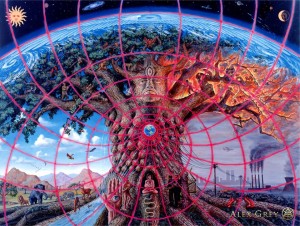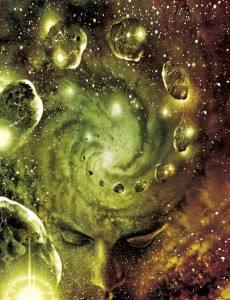Protestantism & Freud – the disjointed roots of America by William James
 “Freud’s emotionalism gave me concern for I considered him somewhat of a religious fanatic, operating outside of religion’s conventional context. In many ways he was a shaman, born in the “wrong” country, twice as jealous of his own “masculine characteristics” because he sensed within himself the “perverse” intuitive rushes and psychic leanings that he feared and believed could undermine the personal authority of the ego and the mass authority of the state.
“Freud’s emotionalism gave me concern for I considered him somewhat of a religious fanatic, operating outside of religion’s conventional context. In many ways he was a shaman, born in the “wrong” country, twice as jealous of his own “masculine characteristics” because he sensed within himself the “perverse” intuitive rushes and psychic leanings that he feared and believed could undermine the personal authority of the ego and the mass authority of the state.
In many ways also Freud’s theories represented the darker aspects of Protestantism, cut free from the conventional belief in an omnipotent God, released from optimistic ascensions into heaven—a psychological hell replacing the earlier theological one, and demons turned into the primitive impulses which were stamped upon the psyche in its infancy. In such a manner, the most pessimistic elements of Protestantism were given a new scientific face and sophisticated justification—just at a time when organized Protestantism was embarked on a new venture in America, stressing the active, aggressive, hopeful aspects of personality that would test the individual’s capacities to rule his own society with a government based not upon fear, but upon freely accepted restraints adapted to the service of the highest aspirations of man.
So Protestantism became schizophrenic; its bleaker side expressed in disguised form through Freud’s theories, its drive for salvation allied with democracy’s conventional churches. That drive toward salvation, nationally expressed was translated as salvation through triumph over poverty, over the class systems of Europe, and over the land itself’, with the help of growing technology. Nothing was to stand in the way. The democracy’s deepest feats and hesitations, and its unspoken suspicions that it’s ideals might be too high, were expressed in Freud’s hypnotic reminders that the natural self could not be trusted. Freud’s unconscious represented the individual’s past; and for Americans it also represented the new democracy’s roots in convoluted European heritage.
Freud actually gave Puritanism a new basis, since he provided a scientific framework in which man’s nature was seen as basically untrustworthy, in need of constant scrutiny in which even the seemingly highest acts of man could have the darkest motives. Psychoanalysis replaced the Catholic confessional. The psychologist became the new priest, in a maneuver of deepest significance by which Freud returned to Protestantism the elements dismissed by Luther, and reinstated a go-between separating God and man—only this time, that go-between was the psychologist, who stood between the conscious and subconscious elements of man.
The individual no longer needed a priest to interpret God’s words or the Bible, but instead required an interpreter to understand the unconscious (and unsavory) aspects of his own psychological identity—for there, he had lost his authority.
——
Creativity became no more than enlightened insanity; and insanity a distorted creativity. Both were seen as the inevitable results of conditioning and neurotic cravings, over which the individual had little control.
Protestantism was based upon man’s right to interpret truth for himself on an individual basis, thus directly challenging the authority of the Roman Catholic Church as the only agency capable of such discrimination; and upon an attempt to put the individual in a one-to-one relationship with God and the universe. In ways, this was a “paganistic” adventure, reviving ancient characteristics of religion that had been buried but not lost when, for example, shamanistic genius was used for the community or tribal good. Freud, however, took that Protestant right away: the individual was seen as incapable of knowing his own motives, much less able to interpret his own relationship with nature or the soul. Freudianism was, then, based upon the less fortunate of Protestantism’s concepts, while stripping it of its heroic qualities.
——
 Psychology and science were simply taking up where the old conventional religions left off…
Psychology and science were simply taking up where the old conventional religions left off…
….The general views of Freudianism and evolution merged, flowed like a dark, threatening stream through all of the sciences and arts, business and social structures; so that all other aspects of life, past, present and future, were seen in what amounted to the murky but hypnotizing light of a new dogma….
….Religion had a good case of social embarrassment and spiritual constipation. Many of it’s ancient doctrines were no longer believed — with good reason—by anyone with sense. Religion had not cleared up its own house, and science huffed and puffed and nearly blew away the whole straw structure….
….Americans, whatever their formal religious persuasions, held to the center post firmly, espousing the rights and abilities of the individual citizen. Freudianism weakened this center post by undermining the basic integrity of the private person, upon which the entire framework hung. Religion could have quickly reinforced itself by reviving the importance of the soul; by stressing its own subjective base; and by trying to re-examine and redefine the soul in the light of new knowledge. It could have dropped its ancient insistence upon blind faith unsupported by any kind of reason; stood its ground against Freudianism while accepting from psychology the invitation to explore the nature of man with an open mind.
Instead, the umbrella split. The intellectuals decided to risk the storm without religion’s protection. Science and religion became like two soaking pedestrians, out on the street in a rain storm, each with half an umbrella and each pretending to be entirely dry.
Fundamental religions were left with a shaggy half- the spokes of the soul, stuck through the weakened dogmatic fabric– wobbling in a base of blind faith that had lost its center post. For both sides dispensed with the basic belief in man’s innate goodness or in the potential for heroic action of a moral nature. Each believed that controls must be applied, and neither the fundamentalists’ sinning self nor the Freudianists’ savage instinctive self could be allowed freedom. Yet to achieve that freedom was a national goal, an idealistic crusade to which the country was committed before the world.
 The dilemma was basic, and the solution was to transfer salvation from a religious to an economic and social arena— where at least the results of grace could be judged—and to depend upon technology to instill fear in men’s hearts, since fear of God no longer offered any protection. In a way, your arms race and destructive nuclear devices became necessary once man believed that he belonged to a species that killed to survive; for in that context, no person or country could be trusted to comply with civilization’s niceties without the initiative of fear.
The dilemma was basic, and the solution was to transfer salvation from a religious to an economic and social arena— where at least the results of grace could be judged—and to depend upon technology to instill fear in men’s hearts, since fear of God no longer offered any protection. In a way, your arms race and destructive nuclear devices became necessary once man believed that he belonged to a species that killed to survive; for in that context, no person or country could be trusted to comply with civilization’s niceties without the initiative of fear.
It is to religion’s shame that it earlier allowed the concept of the sinful self to supersede that of the heroic soul, for in the past religion at least provided psychological devices by which the common man could ally himself with his own good intents, but Freudianism, with its savage unconscious, never provided an adequate hope of personal salvation. There was no hope: God was abandoned. Man had outgrown him. He was at best a symbol of the only-too- falliable human father. And how could the common man rely upon a self whose very instincts now lacked the natural grace of the animals, while retaining an overly exaggerated beastliness, projected as man’s own?
The natural world was also seen in a new light, had insisted upon man’s superiority over the animals, but even then it professed to put man in the position of gentle guardian to them. When evolutionary and Freudian concepts ganged up on the natural world, however, then the environment and all of its living details became fair game; and this at a time when technology was turning man away from his natural and practical relationship with animals and the land.
——
At a time when men were indeed trying to shake off the shackles of religion’s meanest beliefs, Freud in the name of science gave them a new and dangerous foundation. Many intellectuals threw aside the idea of the soul along with the wishy-washy Christian heaven and Dantean hell. In return they found themselves bound by a self capable of the cruelest savagery, but incapable of the slightest deeds of heroic behavior; denied access to the soul through whose dictates man might right himself—and equipped instead with instinctive passions and self-deceptions that no man alone could hope to understand….
….For each person is equal to every other only when we recognize within each person the presence of an inviolate, eminently precious force of identity and meaning that possesses its own innate dignity. This dignity exists beyond our ideas of superiority or inferiority at any time in history, and the spirit within the individual is equal in all degrees to the spirit within each other person. A sane and benevolent society is one that will give that inner potential equal opportunity to fulfill itself according to its own directions and intent. That inner spirit must be understood, therefore, to be of good intent. The individual may not always act in a beneficial manner but the intent of the basic self must be perceived as good, rather than evil or neutral. Freudianism even more drastically than many religions, robbed man of the self’s good intent.”
Above excepts from: The Afterdeath Journal of an American Philosopher – The World View of William James by Jane Roberts (bold emphasis mine)
